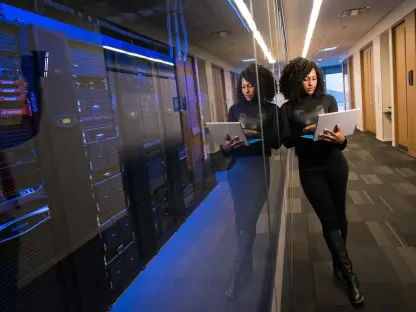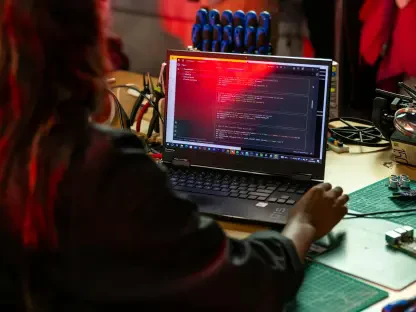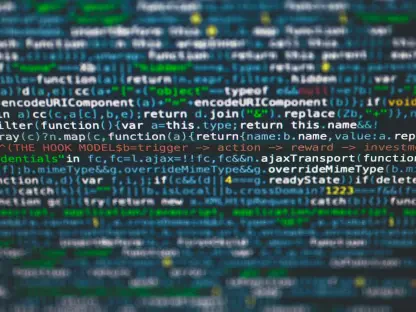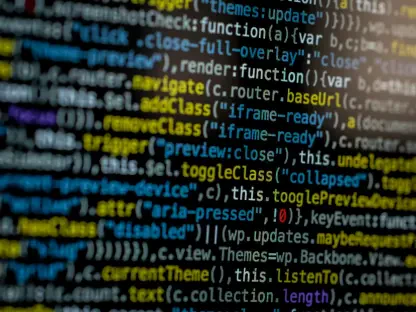Introduction: As the tech industry increasingly relies on open source software, the ecosystem that supports it faces significant challenges. Economic pressures, security risks, and sometimes contentious licensing shifts suggest that open source is at a pivotal moment in its history.
The Changing Landscape of Open Source Licensing
Licensing Shifts and the Impact on Open Software
Recent years have witnessed a paradigm shift in the realm of open source licenses. Major software projects—once the paragons of the open-source ethos—have opted to alter their licensing models, driving a wedge between what was once a unified community. The implications of such shifts have rippled through the technology sector, leaving users and developers to grapple with the ramifications of collaboration and innovation under these new constraints.HashiCorp’s Terraform, Redis, and Elasticsearch serve as prominent examples, showcasing changes that have legitimately protected their business interests. But concurrently, these moves have raised questions regarding the open nature of such software, with many worrying about the erosion of open source ideals.
The Sustainability Question for Open Source Models
Open source, as a concept and movement, faces existential questions surrounding its sustainability in a rapidly evolving tech landscape. As software’s underpinnings have shifted towards greater commercialization, these licensing controversies have sparked debates on whether open source can maintain its principles amidst a need for monetization. The economic downturn has further exacerbated this, shrinking resources and pushing projects to find new means of upkeep.Governance and sustainability models are, therefore, under intense scrutiny. There is a collective quest to strike a delicate balance between ensuring the longevity and integrity of open source projects while staying afloat in a competitive market. This pivot in approach is a crucial conversation stirring in tech communities across the globe.
Economic Climate and Open Source Contributions
The Funding Divide in Open Source Projects
The dichotomy within the open-source domain is stark—on one side, large corporations massively benefit from the collective pursuit of shared software without necessarily paying it forward. On the other hand, maintainers tirelessly work, often without proper compensation, to ensure software robustness and progression. This divide poses a threat to the spirit of open source, where the idea of community-driven development could be overshadowed by the lack of equitable support.
Rethinking Business Models for Open Source Viability
It has become increasingly apparent that traditional donation-based models cannot singularly sustain the vast landscape of open source projects. The tech community is actively contemplating novel business models that could support these endeavors without compromising the foundational open principles. Recognizing the value that open source provides, these conversations emphasize the need for innovative funding solutions that balance profitability with inclusivity.
The Role of Foundation Bodies in Open Source Governance
Supporting Projects Towards Sustainable Futures
Foundation bodies such as The Linux Foundation and Apache Software Foundation play an instrumental role in guiding open source projects toward a sustainable future. These organizations encourage balanced governance, shield projects from hasty relicensing, and foster an environment conducive to open collaboration. Their frameworks function as a beacon for many projects, guiding them in navigating the complexities of open source stewardship.
Open Source Governance and Community-Led Solutions
The AsyncAPI Initiative epitomizes the success possible through community-led governance under the umbrella of a foundation body—specifically, the Linux Foundation. By transitioning to this structured support system, AsyncAPI is positioning itself strategically for future prosperity. Such examples spark optimism within the open source realm, proving that sound governance can be the linchpin to thriving projects.
Security Challenges and Safer Open Source Practices
Prioritizing Security in Open Source Development
Security threats loom large over the open source ecosystem, necessitating a reassessment of coding conventions and practices. Embracing memory-safe languages and defaulting towards secure settings are becoming quintessential strategies to mitigate vulnerabilities. The adoption of such practices signals a maturing awareness among open source projects and their contributors, aiming to robustly protect against ever-emerging cyber threats.
Implementing Tools and Policies for Better Security
The introduction of Software Bill of Materials (SBOMs) and vulnerability scanners stands as a testament to the commitment to advance security within open source. These tools and policies are not just safeguards but vital components in ensuring transparency and diligence in response to potential breaches. The increasing alignment towards these mechanisms illustrates an industry-wide agreement on the importance of bolstering open source defenses.
Open Source and AI: Redefining Collaboration
The Ambiguous Definition of Open Source in AI
As AI technology burgeons, the adaptability of traditional open source definitions is being tested. AI’s unique complexities—such as data dependency and model training—pose new challenges to the previously clear-cut boundaries of what constitutes open source. Addressing these ambiguities is critical to fostering a cooperative environment within AI-driven open source initiatives.
Fostering Collaborative Ecosystems in Open Source AI
In the pursuit of equitable and forward-thinking AI, the push for deeper collaboration has never been more pronounced. Stakeholders across the tech spectrum are called to engage meaningfully—contributing not just code but also resources, expertise, and ethical considerations. Establishing these collaborative ecosystems will be fundamental to the progress and integrity of open source AI.
Monetization and the Future of Open Source
Balancing Free Access and Revenue Generation
Linkerd’s attempt to monetize certain features while preserving its core as open source represents the intricate balancing act many projects are undertaking. This approach demonstrates a practical response to financial pressures, creating new revenue streams while maintaining a commitment to the open source community. As projects evaluate similar pathways, navigating between monetization and freedom emerges as a new frontier for open source.
Pivoting Open Source Approaches for Tomorrow’s Tech
Open source software has become a linchpin in the tech realm, yet it stands at a critical juncture amid emerging challenges. The economic aspect is paramount; funding and sustainability models for open source projects are being pressured, endangering the viability of free, shared software resources that countless organizations depend on. Security threats further exacerbate these pressures, as the underlying code in open source projects is openly accessible, making it essential to stay vigilant against vulnerabilities and maintain stringent security standards.Furthermore, the debates and disputes around licensing models represent another pivotal challenge. With some projects shifting to more restrictive licenses, tensions have surfaced between the need for open collaboration and the desire to protect against proprietary appropriation.As open source software continues to intertwine with commercial and private sectors, these challenges will likely grow, necessitating a collaborative effort from developers, users, and corporations alike. The industry must adapt to these pressures without compromising the ethos that has made open source a foundation of modern computing. The decisions made now by the community will shape not just the future of open source, but potentially the trajectory of the tech industry as a whole. Thus, the open source ecosystem is at a decisive moment, balancing on the edge of tradition and transformation.









